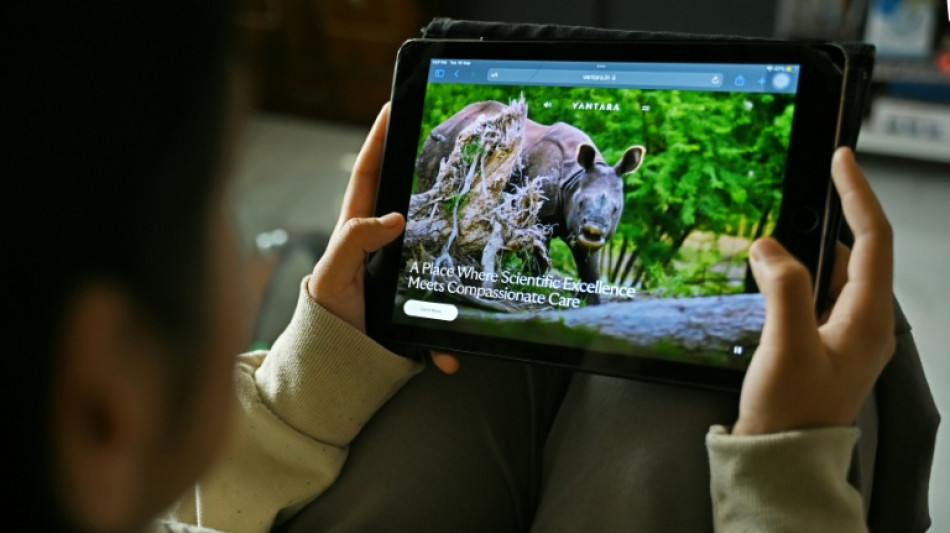

India mega-zoo in spotlight again over animal acquisitions
Leading wildlife protection experts have urged India to suspend all imports of the world's most endangered species, endorsing long-running concerns by conservationists about mass acquisitions by mega-zoo Vantara.
The facility in western Gujarat state, officially known as the Green Zoological Rescue and Rehabilitation Centre, is run by the son of Asia's richest man.
It has scooped up tens of thousands of animals in recent years, and was subject to an Indian Supreme Court review that cleared it of any wrongdoing.
But experts from the world's top wildlife watchdog -- the secretariat overseeing the Convention on International Trade in Endangered Species of Wild Fauna and Flora (CITES) -- have warned Vantara may have imported highly endangered species in violation of international rules.
In a report published ahead of CITES talks this month, they found a "large number of imports... appear to be inconsistent" with rules protecting so-called Appendix I species, the world's most threatened animals.
They recommended serious reforms to ensure Vantara does "not inadvertently become a driver of illegal harvest of wild animals".
Vantara and India's environment ministry did not respond to AFP requests for comment.
Experts have repeatedly sounded the alarm on Vantara's massive animal intake. The facility claims to have 150,000 animals, though CITES officials said closer to 47,000 were reported during a September visit.
"This report raises more questions than it answers," said Mark Jones, head of policy at wildlife group Born Free.
"Why the discrepancies in numbers? Why import so many animals from so many species across the world... Who is supplying these animals, and how can we be sure they're not being traded for profit?"
- 'Really, really shocking' -
CITES examined a laundry list of allegations involving endangered animals including the world's most endangered great ape -- the Tapanuli orangutan.
AFP earlier this year reported that Vantara had acquired a Tapanuli orangutan from the United Arab Emirates that originated in Indonesia.
CITES prohibits trade in the world's most endangered species, but there are exceptions, including for "captive-bred" animals.
The Tapanuli orangutan, like many of Vantara's rarest acquisitions, was given this designation.
But multiple experts told AFP there are no captive breeding programmes for the species in Indonesia -- home to all the estimated 800 Tapanuli orangutans left in the world.
Similar cases involving cheetahs from Syria, a gorilla from Haiti, and bonobos from Iraq are among those questioned by CITES.
The report "is evidence of Vantara's problematic acquisitions," said Panut Hadisiswoyo, founder and chairman of the Orangutan Information Centre in Indonesia.
He has been lobbying, so far unsuccessfully, for the return of several orangutans in Vantara, including a smuggled animal intercepted in India and handed to the facility.
The CITES report says Vantara has acquired more than 2,000 Appendix I animals and nearly 9,000 from less endangered species.
"It's really, really shocking, the number is huge," Panut said.
"Vantara is exploiting legal loopholes and undermining Appendix I."
- 'Exemplary action' -
The CITES report acknowledges Vantara's world-class facilities, but urges India to review its import procedures, bolster capacity and more closely scrutinise permits.
Independent wildlife trade expert Daniel Stiles said the report was "a true examination" of Vantara.
"We'll see if anything changes for the better."
CITES has asked India to report back on its progress, and it could face measures, including trade suspension, if it does not fully address the concerns.
The findings are "deeply concerning and damaging to India's conservation credibility", warned K. Yoganand, a longtime conservation expert in India and Southeast Asia.
"Restoring India's global standing, damaged by the irregularities surrounding these imports, will require exemplary action."
馮-X.Féng--THT-士蔑報




